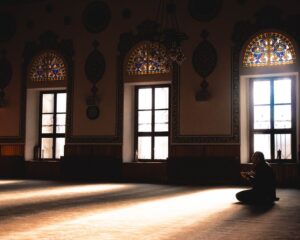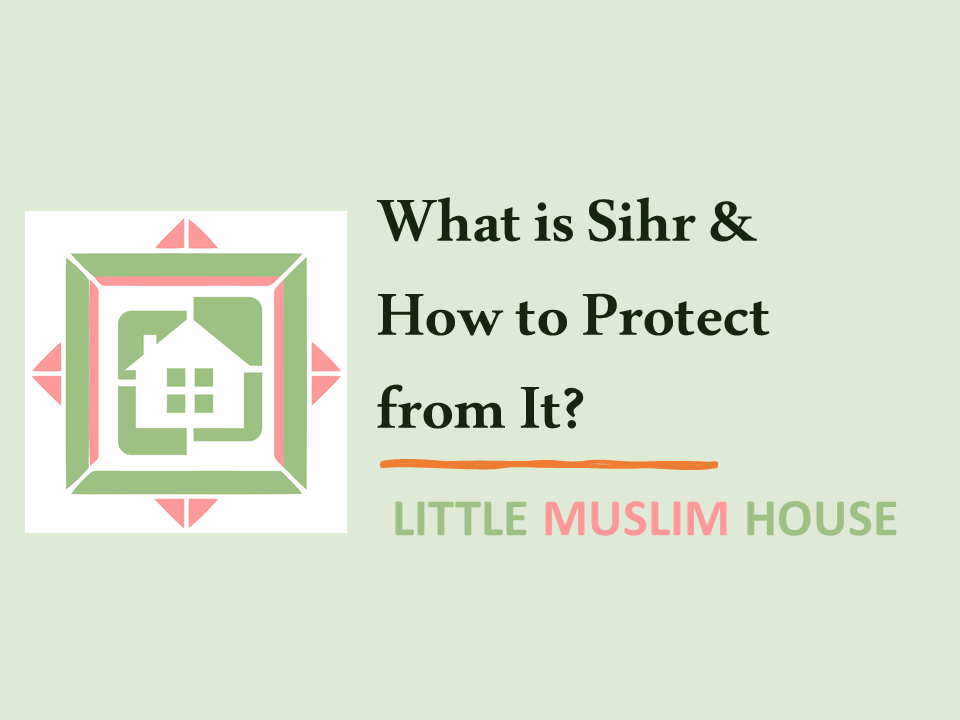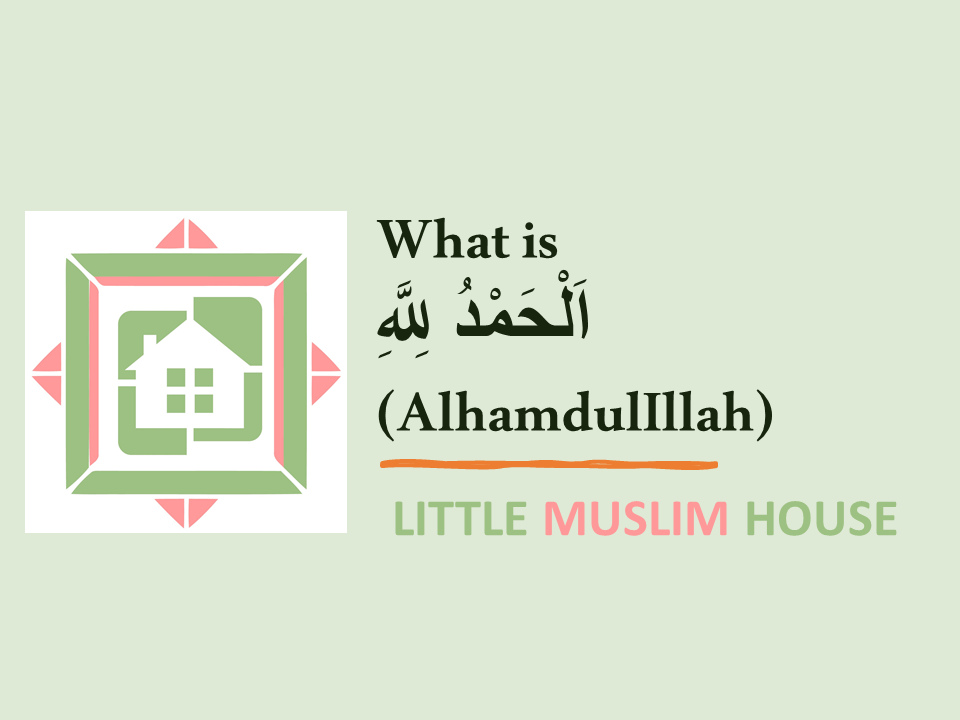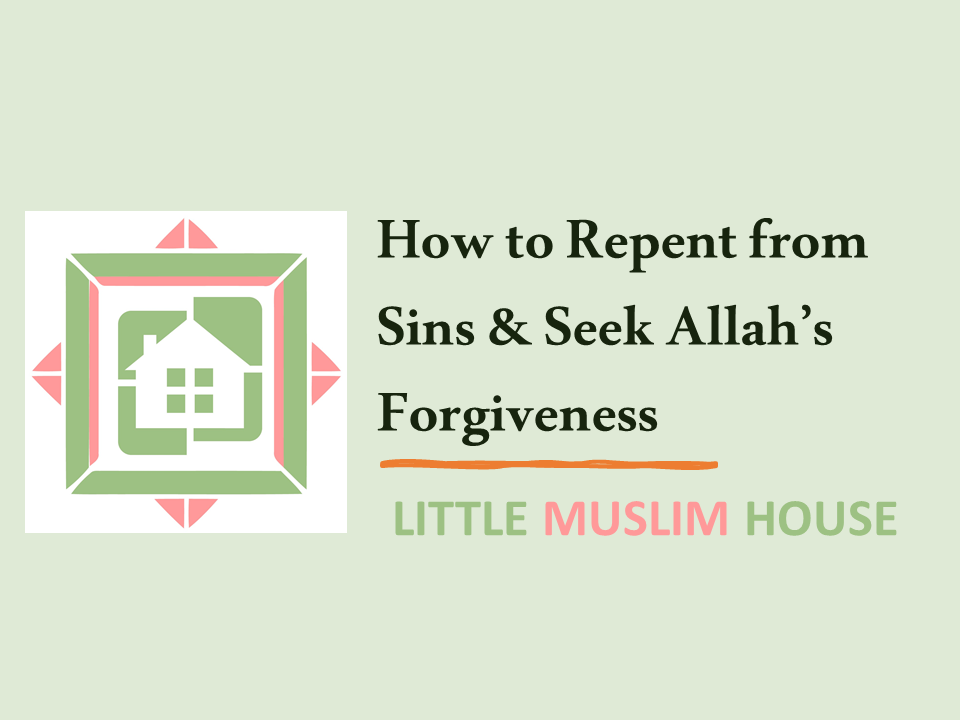Allah says in the Holy Quran:
يٰۤـاَيُّهَا الَّذِيۡنَ اٰمَنُوا اذۡكُرُوۡا اللّٰهَ ذِكۡرًا كَثِيۡرًا ۙ وَّ سَبِّحُوۡهُ بُكۡرَةً وَّاَصِيۡلًا
“O’ you who believe! Remember Allah with much remembrance. And glorify His Praises morning and evening” [Al-Ahzaab 33:41-42].
Keeping our minds constant with the remembrance of Allah has been a practice encouraged by our Prophet (PBUH). Narrations by the companions of the Messenger of Allah (PBUH) reveal that the Prophet himself ensured to supplicate a number of adhkar every morning and evening. In addition to functioning as a shield from all types of calamities that can befall us, the morning and evening adhkar are also crucial in acquiring Allah’s blessings and forgiveness, as well as in cementing our place in paradise.
Times to recite the morning and evening adhkar
Many scholars agree that the morning adhkar should be recited between the time of Fajr salah and sunrise; however, the time could be extended to forenoon (time of ad-duha) if a person happens to miss it. The evening adhkar should be recited between Asr and Maghrib prayers; however, a person who misses this time, may recite the adhkar before one-third of the night has passed.
According to narrations, there are a number of adhkar that we can recite every morning and evening as was the practice of the Prophet (PBUH) and his companions.
Dhikr 1
(thrice every morning & evening)
اللهُ لَا إِلَهَ إِلَّا هُوَ الْحَيُّ الْقَيُّومُ لَا تَأْخُذُهُ سِنَةٌ وَلَا نَوْمٌ لَهُ مَا فِي السَّمَاوَاتِ وَمَا فِي الْأَرْضِ مَنْ ذَا الَّذِي يَشْفَعُ عِنْدَهُ إِلَّا بِإِذْنِهِ يَعْلَمُ مَا بَيْنَ أَيْدِيهِمْ وَمَا خَلْفَهُمْ وَلَا يُحِيطُونَ بِشَيْءٍ مِنْ عِلْمِهِ إِلَّا بِمَا شَاءَ وَسِعَ كُرْسِيُّهُ السَّمَاوَاتِ وَالْأَرْضَ وَلَا يَئُودُهُ حِفْظُهُمَا وَهُوَ الْعَلِيُّ الْعَظِيم
Allahu laaa ilaaha illaa huwal haiyul qai-yoom; laa taakhuzuhoo sinatunw wa laa nawm; lahoo maa fissamaawaati wa maa fil ard; man zallazee yashfa’u indahooo illaa be iznih; ya’lamu maa baina aideehim wa maa khalfahum; wa laa yuheetoona beshai ‘immin ‘ilmihee illa be maa shaaaa; wasi’a kursiyyuhus samaa waati wal arda wa la ya’ooduho hifzuhumaa; wa huwal aliyyul ‘azeem
(Allah – there is no deity except Him, the Ever-Living, the Sustainer of [all] existence. Neither drowsiness overtakes Him nor sleep. To Him belongs whatever is in the heavens and whatever is on the earth. Who is it that can intercede with Him except by His permission? He knows what is before them and what will be after them, and they encompass not a thing of His knowledge except for what He wills. His Kursi extends over the heavens and the earth, and their preservation tires Him not.And He is the Most High, the Most Great.)
Prophet (PBUH) stated that if a person recited Ayatul-Kursi (2:255) in the morning, they are protected from shaytan until the evening, and if a person recites it in the evening, they are protected from shaytan until the morning. [Al-Albani]
Dhikr 2
(thrice every morning & evening)
Abdullah ibn Khubayb narrated that the Prophet (PBUH) said to him: “Recite Surah Al-Ikhlaas, Surah Al-Falaq and Surah An-Naas three times every evening and every morning, and they will suffice you against everything.” [Sahih At-TIrmidhi]
Dhikr 3
(once every morning & evening)
The Prophet (PBUH) is reported to have said: “Whoever recites this in the morning, having utmost sincerity [hoping for forgiveness and reward], and then passes away on that day before entering the evening, will be among the people of Jannah [i.e he/she will enter Jannah]. And whoever recites it at night, having utmost sincerity, then passes away before entering the morning will be among the people of Jannah.” [Sahih Bukhari & other references]
اللَّهُمَّ أَنْتَ رَبِّي لاَ إِلَهَ إِلاَّ أَنْتَ خَلَقْتَنِي وَأَنَا عَبْدُكَ وَأَنَا عَلَى عَهْدِكَ وَوَعْدِكَ مَا اسْتَطَعْتُ أَعُوذُ بِكَ مِنْ شَرِّ مَا صَنَعْتُ أَبُوءُ لَكَ بِنِعْمَتِكَ عَلَيَّ وَأَبُوءُ لَكَ بِذَنْبِي فاغْفِرْ لِي فَإِنَّهُ لاَ يَغْفِرُ الذُّنُوبَ إِلاَّ أَنْتَ
Allahumma anta rabbi la ilaha illa anta khalaqtani wa ana abduka wa ana ala ahdika wa wa’dika mastata’tu, audhu bika min sharri ma sana’tu, abu u laka bi ni’matika ‘alayya wa abu u laka bi dhambi, faghfir li fa innahu la yaghfiru dhunuba illa anta
(O Allah, You are my Lord. There is none worthy of worship besides you. You have created me and I am your servant [i.e I worship you]. I abide by your covenant and promise [of sincerely believing in you and worshipping you] to the best of my ability. I seek refuge in you from the evil I have done. I acknowledge your bounties upon me, and [at the same time] I [also] confess my sins. Therefore, forgive me! Surely, the matter is such that only You forgive sins.)
Dhikr 4
(thrice every morning and evening)
Prophet Muhammad (PBUH) said: “There is no one who says in the morning of every day and the evening of every night, ‘In the name of Allah with Whose name nothing can harm on earth or in heaven, and He is the All-Hearing, All-Knowing’, three times, but nothing will harm him.” [At-Tirmidhi]
بِسْمِ اللهِ الَّذِي لَا يَضُرُّ مَعَ اسْمِهِ شَيْءٌ فِي الْأَرْضِ وَلَا فِي السَّمَاءِ وَهُوَ السَّمِيعُ الْعَلِيمُ
Bismillah illadhi la yadurru ma ‘a ismihi shay’un fi’l-ardi wa la fi’s-samaa’i wa huwa as-samee‘ ul-‘Aleem
(In the name of Allah with Whose name nothing can harm on earth or in heaven, and He is the All-Hearing, All-Knowing)
Dhikr 5
(thrice every morning and evening)
Abu Hurayrah said that a man came to the Prophet (PBUH) and said: “O’ Messenger of Allah, I was stung by a scorpion last night. Prophet replied: “If you had said, when evening came, ‘I seek refuge in the perfect words of Allah from the evil of that which He has created’, it would not have harmed you.” [Muslim]
اَعـوذُبِكَلِمـاتِ اللّهِ التّـامّـاتِ مِنْ شَـرِّ ما خَلَـق
Aoodhu bi kalimaat illaah it-taammaati min sharri ma khalaq
(I seek refuge in the perfect words of Allah from the evil of that which He has created)
Dhikr 6
(once every morning and evening)
Abu Bakr as-Siddeeq said: “O Messenger of Allah, teach me something that I can say in the morning and in the evening. The Messenger of Allah (PBUH) said: ‘O’ Abu Bakr, say: O’ Allah, Creator of the heavens and the earth, knower of the unseen and the seen, Lord and sovereign of all things, I seek refuge in You from the evil of my own self and from the evil of the Shaytaan and his encouragement of shirk, and from causing any harm to myself or any Muslim’.” [At-Tirmidhi & Ahmad]
اللَّهُمَّ فَاطِرَ السَّمَوَاتِ وَالْأَرْضِ عَالِمَ الْغَيْبِ وَالشَّهَادَةِ لَا إِلَهَ إِلَّا أَنْتَ رَبَّ كُلِّ شَيْءٍ وَمَلِيكَهُ أَعُوذُ بِكَ مِنْ شَرِّ نَفْسِي وَمِنْ شَرِّ الشَّيْطَانِ وَشِرْكِهِ وَأَنْ أَقْتَرِفَ عَلَى نَفْسِي سُوءًا أَوْ أَجُرَّهُ إِلَى مُسْلِمٍ
Allahumma faatir as-samawaati wal-ard, ‘aalim al-ghaybi wa-shahaadathi, laa ilaaha illa anta, Rabba kulli shay’in wa maleekahu, a‘oodhu bika min sharri nafsi wa min sharri-sh-shaytaani wa shirkihi, wa an aqtarifa ‘ala nafsi soo’an aw ajurrahu ila muslim
(O’ Allah, Creator of the heavens and the earth, knower of the unseen and the seen, Lord and sovereign of all things, I seek refuge in You from the evil of my own self and from the evil of the shaytaan and his encouragement of shirk, and from causing any harm to myself or any Muslim.)
Dhikr 7
(once every morning and evening)
Abu Hurayrah reported that the Messenger of Allah (PBUH) informed his companions to recite the following dua in the morning:
اللَّهُمَّ بِكَ أَصْبَحْنَا وَبِكَ أَمْسَيْنَا وَبِكَ نَحْيَا وَبِكَ نَمُوتُ وَإِلَيْكَ الْمَصِيرُ
Allahumma bika asbahna wa bika amsayna, wa bika nahya wa bika namoothu wa ilayka’al-maseer
(O’ Allah, by Your grace we reach the morning, by Your grace we reach the evening, by Your grace we live and by Your grace we die, and to You is the ultimate return)
and to recite the dua below in the evening:
اللَّهُمَّ بِكَ أَمْسَيْنَا وَبِكَ أَصْبَحْنَا وَبِكَ نَحْيَا وَبِكَ نَمُوتُ وَإِلَيْكَ النُّشُورُ
Allahumma bika amsayna wa bika asbahna, wa bika nahya wa bika namoot wa ilayka’an-nushoor
(O’ Allah, by Your grace we reach the evening, by Your grace we reach the morning, by Your grace we live, by Your grace we die and to You is the resurrection)
[Sahih At-Tirmidhi]
Dhikr 8
(100 times every morning)
Allah’s Messenger (PBUH) said,” Whoever recites: ‘There is no god except Allah alone, with no partner or associate; to Him belongs sovereignty, to Him be praise, and He has power over all things’ one hundred times will get the same reward as given for manumitting ten slaves; and one hundred good deeds will be written in his accounts, and one hundred sins will be deducted from his accounts, and it (his saying) will be a shield for him from Satan on that day till night, and nobody will be able to do a better deed except the one who does more than he.” [Sahih Al-Bukhari]
لَا إِلٰهَ إِلَّا اللهُ وَحْدَهُ لَا شَرِيكَ لَهُ، لَهُ الْمُلْكُ وَلَهُ الْحَمْدُ، وَهُوَ عَلَى كُلِّ شَيْءٍ قَدِيرٌ
La ilaha illallahu wahdahu la shareeka lahu, lahul-mulku wa lahul- hamd wa huwa ‘ala kulli shai’in qadeer,”
(There is no god except Allah alone, with no partner or associate; to Him belongs sovereignty, to Him be praise, and He has power over all things)
Dhikr 9
(once every morning and evening)
The Prophet (PBUH) said to Fatimah: “What is preventing you from listening to the advice I give you? You should say when morning comes and when evening comes: ‘O Ever-Living, O Eternal One, by Your mercy I seek help; rectify all my affairs and do not leave me in charge of my affairs even for the blink of an eye’. [Sahih Al-Albaani]
يَا حَيُّ يَا قَيُّومُ بِرَحْمَتِكَ أَسْتَغِيثُ أَصْلِحْ لِي شَأْنِي كُلَّهُ وَلَا تَكِلْنِي إِلَى نَفْسِي طَرْفَةَ عَيْنٍ
Yaa Hayyu yaa Qayyoom, bi rahmathika asta’eethu, aslih li sha’ni kullahu, wa laa takilni ilaa nafsees tarfata ‘ayn
(O Ever-Living, O Eternal One, by Your mercy I seek help; rectify all my affairs and do not leave me in charge of my affairs even for the blink of an eye)
Dhikr 10
(once every morning and evening)
When evening came, the Prophet of Allah (PBUH) would say:
أَمْسَيْـنا وَأَمْسـى المـلكُ لله وَالحَمدُ لله، لا إلهَ إلاّ اللّهُ وَحدَهُ لا شَريكَ لهُ، لهُ المُـلكُ ولهُ الحَمْـد، وهُوَ على كلّ شَيءٍ قدير، رَبِّ أسْـأَلُـكَ خَـيرَ ما في هـذهِ اللَّـيْلَةِ وَخَـيرَ ما بَعْـدَهـا، وَأَعـوذُ بِكَ مِنْ شَـرِّ هـذهِ اللَّـيْلةِ وَشَرِّ ما بَعْـدَهـا، رَبِّ أَعـوذُبِكَ مِنَ الْكَسَـلِ وَسـوءِ الْكِـبَر، رَبِّ أَعـوذُبِكَ مِنْ عَـذابٍ في النّـارِ وَعَـذابٍ في القَـبْر
Amsayna wa amsa al-mulku Lillahi, wa’l-hamdu Lillah, laa ilaaha ill-Allahu wahdahu laa shareeka lah, lahu’l-mulku wa lahu’l-hamd wa huwa ‘ala kulli shay’in qadeer. Rabbiy as’aluka khayra ma fi haadhihi’l-laylah wa khayra ma ba‘daha, wa a‘oodhu bika min sharri ma fi haadhihi’l-laylathi wa sharri ma ba‘daha. Rabbiy a‘oodhi bika min al-kasali wa soo’ il-kibari; Rabbiy a‘oodhu bika min ‘adhaabin fi’nnaari wa ‘adhaabin fi’l-qabr
(We have reached the evening and all sovereignty belongs to Allah; praise be to Allah, there is no god but Allah alone with no partner or associate; to Him belongs sovereignty, to Him be praise, and He has power over all things. My Lord, I ask You for the good of what is in this night and the good of what comes after it, and I seek refuge with You from the evil of what is in this night and the evil of what comes after it. My Lord, I seek refuge with You from laziness and the troubles of old age; my Lord, I seek refuge with You from punishment in the Fire and punishment in the grave).
When morning came, he would say likewise:
أَصْبَحْنَا وَأَصْبَحَ الْمُلْكُ للهِ وَالْحَمْدُ للهِ، لَا إِلٰهَ إِلَّا اللهُ وَحْدَهُ لَا شَرِيكَ لَهُ، لَهُ الْمُلْكُ وَلَهُ الْحَمْدُ وَهُوَ عَلَى كُلِّ شَيْءٍ قَدِيرٌ، ربِّ أَسْأَلُكَ خَيْرَ مَا فِي هَذَا الْيَومِ وَخَيْرَ مَا بَعْدَهُ، وَأَعُوذُ بِكَ مِنْ شَرِّ مَا فِي هَذَا الْيَومِ وَشَرِّ مَا بَعْدَهُ، رَبِّ أَعُوذُ بِكَ مِنَ الْكَسَلِ، وَسُوءِ الكِبَرِ، رَبِّ أَعُوذُ بِكَ مِنْ عَذَابٍ فِي النَّارِ وَعَذَابٍ فِي الْقَبْرِ
Asbahna wa-asbahal-mulku lillahi walhamdu lillah la ilaha illal-lahu, wahdahu la shareeka lah, lahul-mulku walahul-hamd, wahuwa a’la kulli shayin qadeer, rabbi as-aluka khayra ma fee hatha-alyawmi, wakhayra ma ba’dahu, wa-a’uthu bika min sharri ma fil hatha-alyawmi, washarri ma ba’dahu, rabbi a’uthu bika minal-kasal, wasu’-il kibar, rabbi a’uthu bika min a’thabi fin-nari, wa’athabin fil-qabr
(We have reached the morning and at this very time unto Allah belongs all sovereignty, and all praise is for Allah. None has the right to be worshipped except Allah, alone, without partner, to Him belongs all sovereignty and praise and He is over all things omnipotent. My Lord, I ask You for the good of this day and the good of what follows it and I take refuge in You from the evil of this day and the evil of what follows it. My Lord, I take refuge in You from laziness and senility. My Lord, I take refuge in You from torment in the Fire and punishment in the grave.)
Dhikr 11
(thrice every morning and evening)
The Messenger of Allah (PBUH) said: “There is no Muslim who says three times, when morning comes and when evening comes, ‘I am content with Allah as my Lord, with Islam as my religion, and with Muhammad (PBUH) as my Prophet’, but it will be incumbent upon Allah to make him content on the Day of Resurrection.” [Ahmad]
رَضيـتُ بِاللهِ رَبَّـاً وَبِالإسْلامِ ديـناً وَبِمُحَـمَّدٍ نَبِيّـاً
Radeetu billahi rabban wa bi Islami deenan wa bi Muhammadin (sall-Allahu ‘alayhi wa sallama) nabiyyan
(I am content with Allah as my Lord, with Islam as my religion, and with Muhammad (blessings and peace of Allah be upon him) as my Prophet)
Dhikr 12
(thrice in the morning)
Juwayriyah narrated that the Prophet (PBUH) left her house one morning for the Fajr prayer, while she was sitting in her place of worship. He returned in the forenoon, and she was still sitting there. He said, “You are still in the same state that I left you in?” She said, “Yes.” He said, “After I left you, I said four words three times, if they are to be weighed against what you have said since the early morning, they would outweigh them: ‘Glory is to Allah and praise is to Him, by the multitude of His creation, by His Pleasure, by the weight of His Throne, and by the extent of His Words.” [Muslim]
سُبْحَانَ اللهِ وَبِحَمْدِهِ: عَدَدَ خَلْقِهِ، وَرِضَا نَفْسِهِ، وَزِنَةَ عَرْشِهِ وَمِدَادَ كَلِمَاتِهِ
Subhaan Allahi wa bi hamdih ‘adada khalqihi wa rida nafsihi wa zinata ‘arshihi wa midaada kalimaatihi
(Glory is to Allah and praise is to Him, by the multitude of His creation, by His Pleasure, by the weight of His Throne, and by the extent of His Words.)
Dhikr 13
(100 times every morning and evening)
The Messenger of Allah (PBUH) said: “Whoever says in the morning and in the evening: ‘Glory and praise be to Allah’ one hundred times, no one will come on the Day of Resurrection with anything better than what he has done, except one who said something like what he said, or more than that.” [Bukhari]
سُبْحـانَ اللهِ وَبِحَمْـدِهِ
Subhaan Allahi wa bi hamdihi
(Glory and praise be to Allah)
May Allah accept our adhkar and grant us a place among the dwellers of paradise. Aameen!
Also Read:
Dua for protection from evil eye
What is Sihr & how to protect from it?





